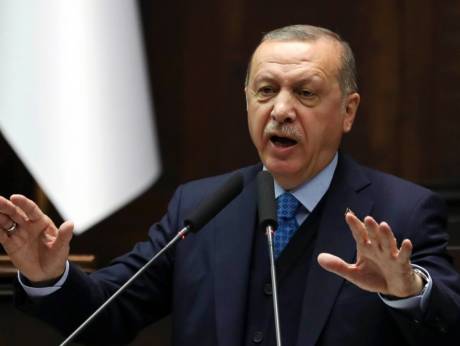Gulf News
By Mohammad Hassan Al Harbi
Special to Gulf News
The way some republics have tried to morph into empires in the recent past raises several questions.
For monarchists, this question is always in their minds. They bet on the consequences of the republic system that leads to ignorance, marginalisation and poverty, apart from the iron fist of ruling their countries. Those who support the monarchial system believe that all these factors would cause the collapse of these systems eventually.
Making a comparison between the two systems in the Arab world will lead to the fact that people in Arab monarchies are much better off than those in the republics. For instance, if we take a person from a monarchy and another one from a republic and put them in a psychological and mental laboratory, we will find the social development of the first person is higher than the second one. What factors are responsible for this result?
In fact, it is easy to recognise the constitutional and legal form of any monarchy in the world, and know whether it is a constitutional or an absolute monarchy. In the republican system, as is expected, a president shall serve for a specific term of four or five years. In most republics around the world, there is a constitution ban on a president after two consecutive terms in office (United States and France).
However, the world is witnessing a strange combination in historically known traditional ruling regimes, making it difficult for political observers to define the identity of such a mix of ruling system or giving it a specific form.
There are apparent examples of such ruling systems in the world, foremost of which are three republics that have completely transformed into empires. The first of them is the Turkish republic under the leadership of President Recep Tayyip Erdogan — who can now stay in power for more than two terms as per the recently endorsed presidential system.
The second one is the republic of Russian Federation led by President Vladimir Putin, who was re-elected for the fourth time last month according to a semi-presidential system. Putin managed to retain his grip on power for six more years in 2018 Russian presidential elections, Putin has mastered the democratic game in which the president and prime minister exchange their posts in every new elections. The 2008 presidential election was won by Dmitry Medvedev, and since then the two have exchanged roles, marking the beginning of what observers consider to be a period of ‘tandemocracy’.
The third republic is China led by its President Xi Jinping, who can now stay as an all-powerful president for life, a move that came as a surprise to political observers, turning their expectations and analyses about the future of China upside down.
The fourth one is the Republic of Iran, which aims to realise its old and renewed dream of becoming an empire. With such sweeping transformations, one wonders what would be the dramatic changes, surprises or shocks that may happen in our world after two or three decades?
In the Arab world, one can notice that what was unusual has become familiar with the passage of time. It has become a norm that a president renews his term in power after the end of two consecutive terms in office. Dictators in the Third World become addicted to power. In some of those so-called ‘Republics’, political leaders crave power above all else, and once they get a taste of it, they are unable to give it up and lust for more and more until they become addicted to power.
Typically, the president, whose terms end and is supposed to leave office, sticks to power and does whatever needed to tighten his grip on power. To succeed and remain in power smoothly, he often resorts to influential state institutions such as the army, security apparatus, intelligence and media to tighten his grip on power. All these institutions work devotedly to mobilise different community sectors, in order to support the president. This is the case of the world’s tyrants since the formation of human societies and the birth of the governments until now. The question arises here: Would it be possible for people to play a role in positively influencing people to oppose a dictatorship?
Yes, there are many examples throughout history, but how people can play roles and within which context? For us as Arabs, we should learn from the bitter lesson of the so-called Arab Spring. This equation has proved to be a failure in a number of countries in the Arab world in particular, and in Africa. This is simply because foreign powers, which interfere to help people revolt against their rulers (upon request by some groups or parties) do not do so for the sake of those people. They only interfere to serve their own economic or geopolitical interests or even for some other purposes.
When foreign powers enter our countries, they do not pull their troops out easily, and when that happens, they leave behind chaos in the paralysed countries that are then tied to concession agreements that block development and act as an impediment to progress. Iraq stands as a perfect example of this political scenario and plots by foreign powers, while Libya is moving in the same direction, too. The toppling of authoritarian regimes should not be done by resorting to help from foreign and superpowers, but by relying on the people themselves under the constitution.
Mohammad Hassan Al Harbi is a renowned columnist and author whose writings cover various fields ranging from media studies to education. He has worked in various UAE media outlets as well as the banking sector. He holds a master’s degree in media and journalism.







